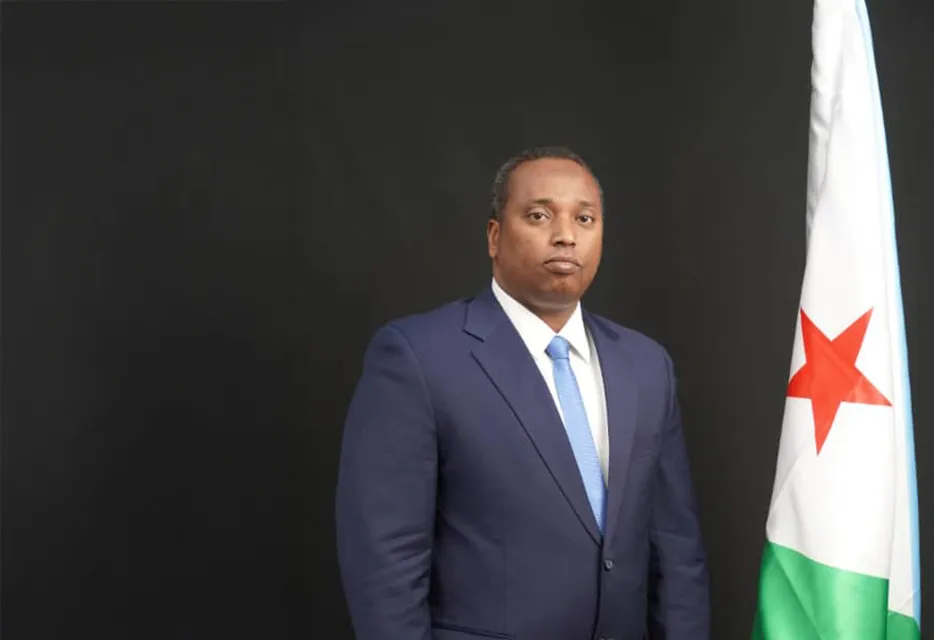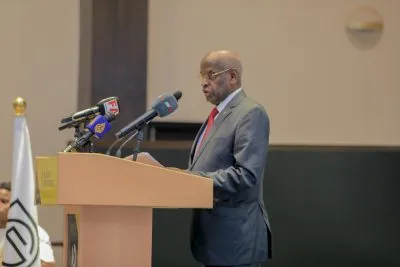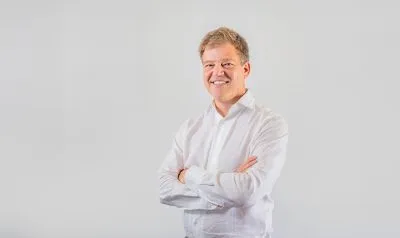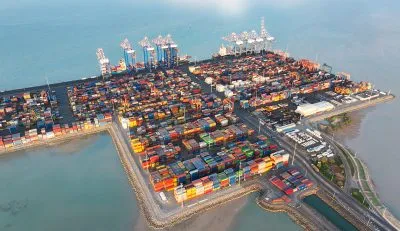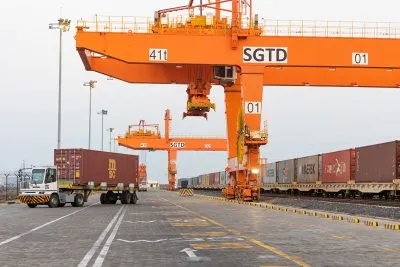What is the progress on Djibouti’s target of producing 100% of its energy from renewable sources by 2035?
Since COP21 in 2015 Djibouti has made a strong commitment to energy transition. Today, our country generates around 80% of its energy from renewable sources – thanks mainly to the interconnection with Ethiopia and the development of the wind farm. Only 20% of our production still relies on thermal sources, which are necessary to stabilise the network.
This places Djibouti among the leaders in the energy transition, on the same level as countries such as Portugal or Costa Rica.
In the long term, our ambition is to achieve energy self-sufficiency by producing 100% of our electricity from clean energy sources. We have strong solar potential, with more than 350 days of sunshine per year, and also significant wind potential thanks to the winds of the Gulf of Aden.
Djibouti is located on the Rift Valley, which offers us a unique opportunity to develop geothermal energy. We also have energy production projects based on biomass and tidal power, as well as initiatives on green hydrogen.
The liberalisation of the energy sector has led to the entry of independent power producers (IPPs). What is your assessment of this development?
The liberalisation of the sector began in 2015, with a law allowing independent producers to enter the energy sector. Before that, only the state-owned company produced electricity, from its thermal power plants. Today, with the falling cost of renewable energy, the market is more attractive, and we have seen the arrival of new private players, which is a major step forward.
In 2023 Djibouti inaugurated its first wind farm (17 wind turbines with a total capacity of 60 MW), located in Ghoubet Bay, developed in a public-private partnership including Africa Finance Corporation (AFC). What is your assessment after a year and a half of operation?
This project, which is the first large-scale renewable energy project to be realised, marks a major turning point for Djibouti.
After more than a year of operation, we are very satisfied: the park contributes significantly to our energy mix and demonstrates to our fellow citizens that renewable energy is not a theory, but a tangible reality.
This is only the first stage: we have the possibility of extending this park to add an additional 40 MW and reach a total capacity of 100 MW in the coming years.
The Grand Bara solar farm is another major project. When can we expect it to be commissioned?
The Grand Bara solar farm, a key project for Djibouti’s energy transition, is well under way. Construction has begun with an initial phase of 25 MW, with 10 MW on storage batteries. This phase will be operational by the first quarter of 2026, with a possible extension of up to 100 MW in the next five years. We have signed all the necessary agreements with the investor, AMEA Power, and construction is underway.
How much electricity does Djibouti still import from Ethiopia?
Today, around 50% of our electricity comes from Ethiopia. A second electrical interconnection line, currently under construction, will enable us to diversify our energy imports and strengthen our energy security.
Energy demand is constantly growing, particularly with the industrialisation of the country and the future development of the port of Damerjog. How does Djibouti intend to meet this demand?
We have to anticipate this increase. Currently, the country reaches 155 MW peak consumption, but with urban and industrial development demand will increase by 10 to 15% per year. Our objective is to increase production to between 400 and 500 MW in the next five years to keep pace with this growth.
Are all regions connected to the electricity grid?
No, the south of the country is connected to the capital, but the north is not yet connected. However, we have promoted solar energy production projects in the two northern regions: one with more than 2 MW in Tadjourah and another in Obock with more than 1 MW.
Today around 65% to 70% of the population has access to electricity, and our goal is to achieve 100% electrification in the next five years. Electrification of the entire territory is a priority in our energy strategy.
Djibouti is said to have one of the highest electricity tariffs in Africa. Why is that and how can it be reduced?
First of all, I would like to point out that we do not have one of the highest tariffs in Africa. It is important to know that we do not have a single tariff, but a tariff table with 11 to 12 offers.
It is true that for the poorest households the tariffs are around 12 cents per kWh. The current cost of electricity is due, among other things, to the absence of public subsidies – unlike in other countries – as well as to the use of generators and the importation of energy.
To remedy this, we have introduced several tariff reductions since 2011. We are continuing our efforts by increasing the share of renewable energy, which will make electricity more competitive and affordable.
That said, the country’s climate, with high temperatures and a high demand for air conditioning during the summer period, also constitutes a challenge in terms of controlling costs.
What measures are planned to improve energy cost competitiveness?
We have already implemented measures to reduce this cost and its reduction is one of the government’s priorities. But remember that Djibouti is proud to offer continuous 24-hour electricity, with a stabilised network, which is a considerable asset.
Our country has also authorised self-production of energy for a certain amount of capacity produced. We issue authorisations and licences to self-producers, whether they are hotels, embassies, bank headquarters or private residences. These producers can not only consume their own energy, but also feed the surplus back into the grid.
How does the government raise awareness among businesses and households about better energy management?
We encourage the installation of solar panels, wind turbines and low-consumption equipment (LED lamps, high-performance air conditioners, etc.). A project is underway with the French development agency to equip more than 11 administrative buildings, including the ministerial complex, with solar panels and to modernise the infrastructure.
With the rise of renewable energies, can Djibouti achieve energy autonomy?
Yes, it is a realistic and achievable goal. We have several projects in parallel: solar, geothermal, tidal power, hydrogen and biomass.
Geothermal energy is a key resource, capable of operating continuously and ensuring stable production. Djibouti has more than 1,000 MW of geothermal potential, which we intend to exploit.
We also have a green hydrogen project in the north of the country, in collaboration with the international company CWP Global, which could produce between five and 10 GW of solar and wind energy.
We are on the right track. Thanks to our four strategic pillars – national production, renewable energy, universal access and energy efficiency – we are moving towards a sustainable energy mix. Within five years, with our current projects, we will be able to ensure sufficient local production and, in time, to consider exports.
Want to continue reading? Subscribe today.
You've read all your free articles for this month! Subscribe now to enjoy full access to our content.
Digital Monthly
£8.00 / month
Receive full unlimited access to our articles, opinions, podcasts and more.
Digital Yearly
£70.00 / year
Our best value offer - save £26 and gain access to all of our digital content for an entire year!

 Sign in with Google
Sign in with Google 